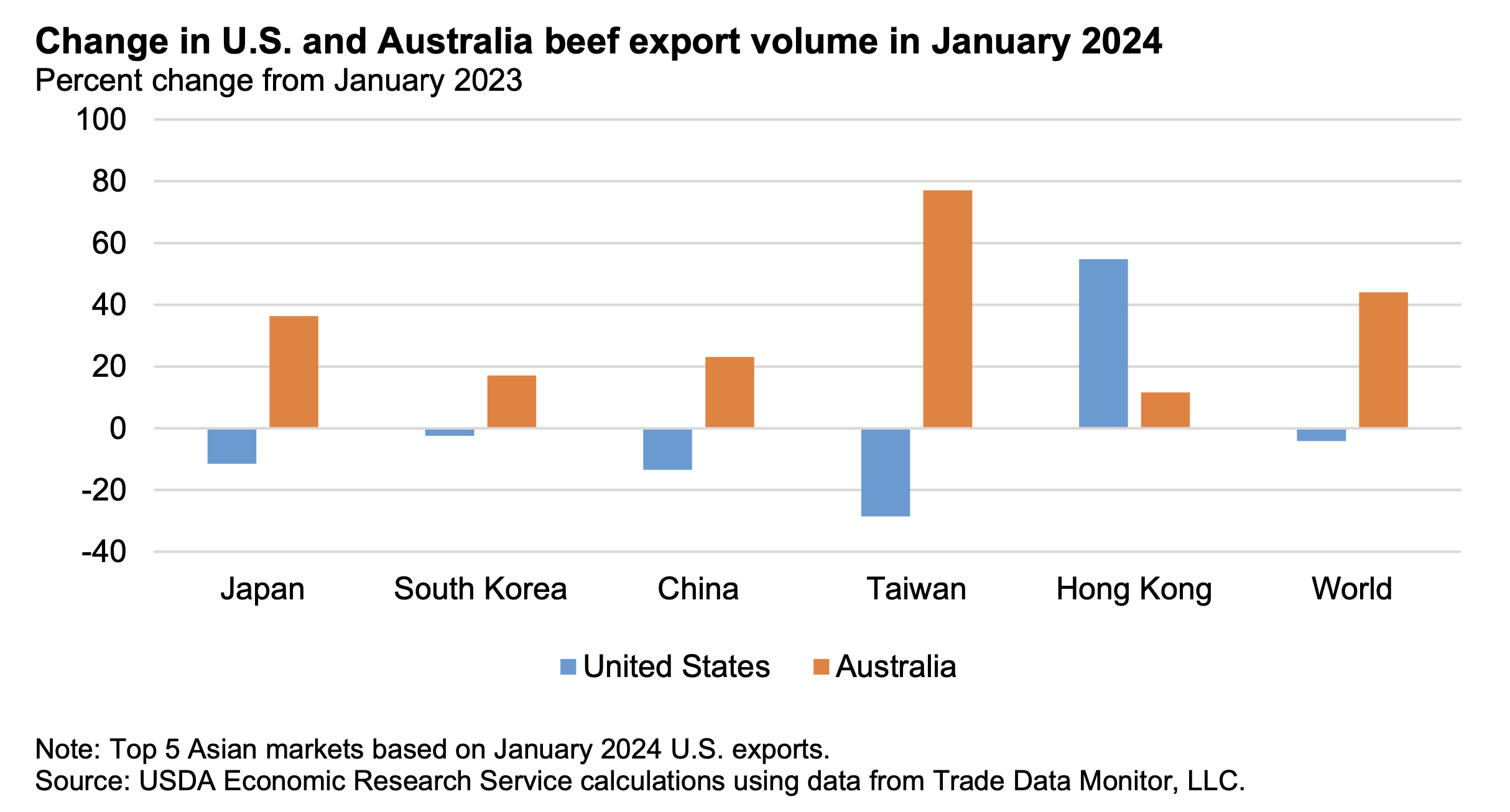US beef exports less competitive globally – USDA ERS
Monthly exports in January were 233 million pounds, 4% less than last year and 8 percent below the 2019–23 average, according to the most recent USDA Livestock, Dairy and Poultry Outlook report.
Exports to China were about 4 million pounds lower year over year, a 12% decrease, but were about mid-range of where monthly exports have been since ramping up in 2020. Exports to Taiwan were also 4 million pounds less than last year, though for a much smaller market this was about a 28% decrease. Exports to Japan were 11% lower year over year, while exports to South Korea were 3% lower. Reduced exports to Asia were partially offset by a 17% increase in exports to Mexico, where the peso continues to strengthen against the US dollar, making US beef more competitive.
On a global scale, US beef is expected to continue to be less competitive, especially as Australian beef production increases. Australia has finally emerged from the rebuilding phase of the cattle cycle, and its production continues to increase. There are some indicators of drier weather across the country, leading producers to retain fewer cattle in order to maintain feed availability. According to the Australian Bureau of Agricultural and Resource Economics and Sciences Agricultural Commodities Report from March 2024, increased cattle slaughter and beef production are expected to lead to a 21% increase in exports during their 2023–24 marketing year (July–June).
The chart below compares year-over-year percent changes in exports from the United States and Australia in January 2024 for the top Asian markets and the world. Exports from Australia have increased to nearly all major markets, and the country’s increase in total exports to the world was largely driven by increased exports to the United States. Decreased domestic beef production in 2024 will likely continue to push US beef prices higher, making it even less price competitive on a global scale. The forecast for US beef exports in 2024 is unchanged from last month at 2.785 billion pounds, which if realised would be an 8% decline year over year.

